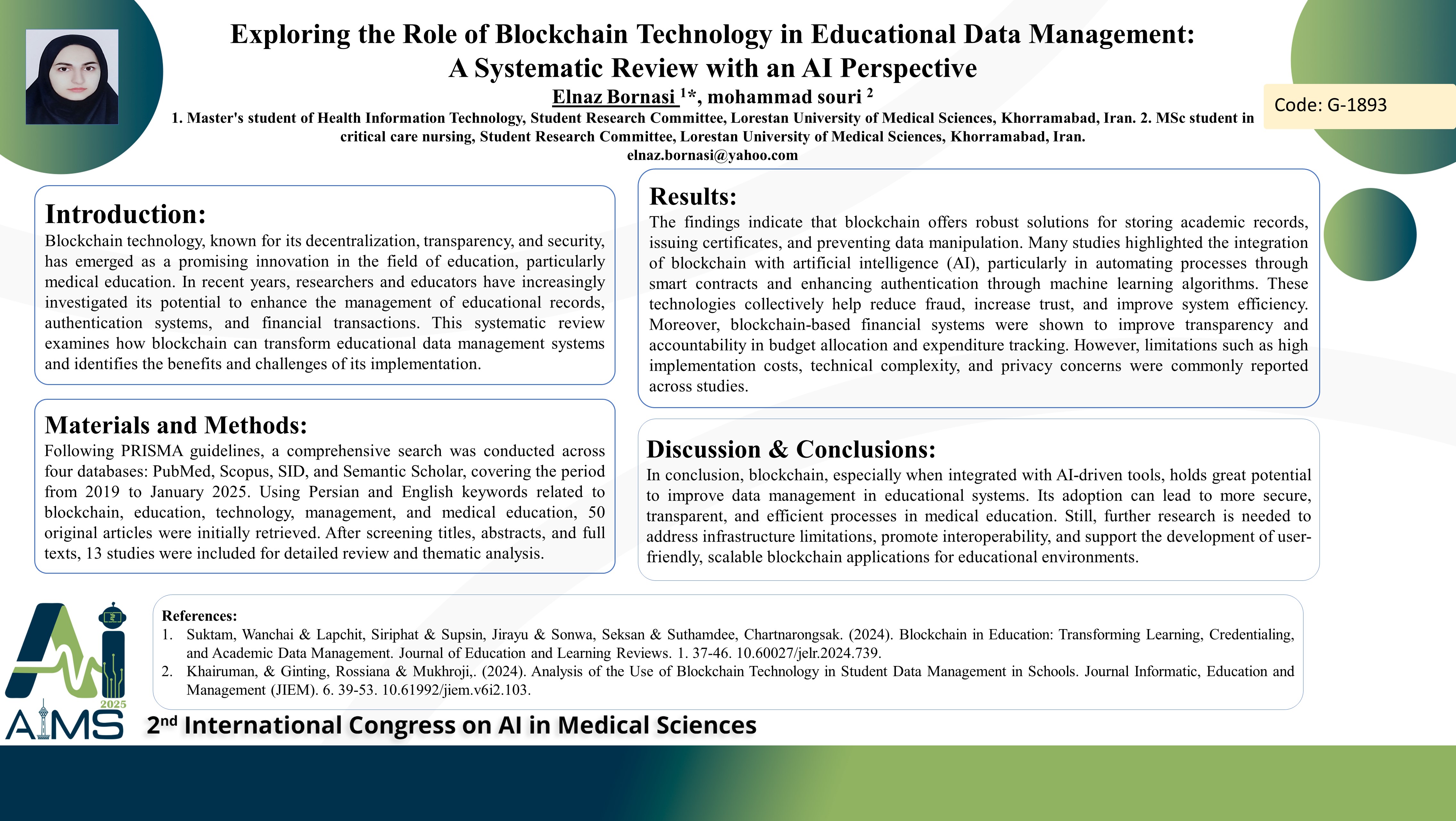Exploring the Role of Blockchain Technology in Educational Data Management: A Systematic Review with an AI Perspective
Code: G-1893
Authors: Elnaz Bornasi * ℗, Mohammad Souri
Schedule: Not Scheduled!
Tag: Medical Education
Download: Download Poster
Abstract:
Abstract
Background and aims: Blockchain technology, known for its decentralization, transparency, and security, has emerged as a promising innovation in the field of education, particularly medical education. In recent years, researchers and educators have increasingly investigated its potential to enhance the management of educational records, authentication systems, and financial transactions. This systematic review examines how blockchain can transform educational data management systems and identifies the benefits and challenges of its implementation. Method: Following PRISMA guidelines, a comprehensive search was conducted across four databases: PubMed, Scopus, SID, and Semantic Scholar, covering the period from 2019 to January 2025. Using Persian and English keywords related to blockchain, education, technology, management, and medical education, 50 original articles were initially retrieved. After screening titles, abstracts, and full texts, 13 studies were included for detailed review and thematic analysis. Results: The findings indicate that blockchain offers robust solutions for storing academic records, issuing certificates, and preventing data manipulation. Many studies highlighted the integration of blockchain with artificial intelligence (AI), particularly in automating processes through smart contracts and enhancing authentication through machine learning algorithms. These technologies collectively help reduce fraud, increase trust, and improve system efficiency. Moreover, blockchain-based financial systems were shown to improve transparency and accountability in budget allocation and expenditure tracking. However, limitations such as high implementation costs, technical complexity, and privacy concerns were commonly reported across studies. Conclusion: In conclusion, blockchain, especially when integrated with AI-driven tools, holds great potential to improve data management in educational systems. Its adoption can lead to more secure, transparent, and efficient processes in medical education. Still, further research is needed to address infrastructure limitations, promote interoperability, and support the development of user-friendly, scalable blockchain applications for educational environments.
Keywords
Blockchain, Medical Education, Artificial Intelligence
